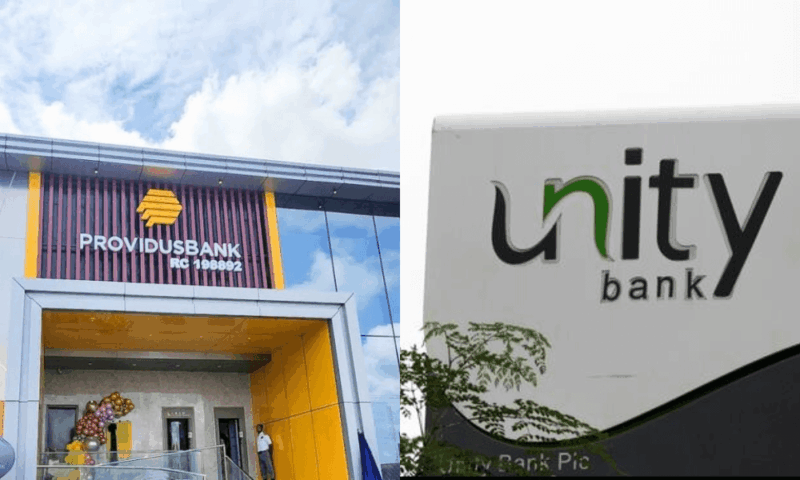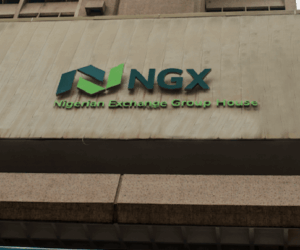The Nigerian banking sector is witnessing a transformative consolidation as Providus Bank acquires Unity Bank through a landmark Central Bank of Nigeria’s (CBN)-backed intervention valued at approximately N700 billion.
This strategic merger represents one of the most significant banking sector resolutions since the 2009 financial crisis, positioning Providus as a systemically important national bank while addressing critical stability concerns in the financial system. The transaction structure offers Unity Bank’s shareholders a choice between N3.18 per share cash consideration or a share swap of 17 Unity shares for 18 Providus shares.
Transaction structure, mechanics
The merger operates under a court-approved Scheme of Merger sanctioned on September 26, 2025, following extensive regulatory reviews and stakeholder consultations. The transaction architecture involves several sophisticated components:
•The CBN’s support package combines multiple financial instruments, including long-term accommodation facilities, contingent capital arrangements, and equity recognition mechanisms.
This multi-layered approach provides Providus with the necessary regulatory cushion to absorb Unity’s balance sheet impairments while maintaining minimum capital adequacy requirements.
The shareholder consideration framework offers two distinct pathways. The cash option provides immediate liquidity at a fixed valuation, particularly attractive to institutional investors and shareholders seeking exit opportunities. The share swap alternative enables continued participation in the combined entity’s growth story, with the exchange ratio reflecting a modest premium to Unity’s pre-announcement market valuation.
The legal transfer mechanism under the Companies and Allied Matters Act (CAMA) ensures seamless succession of all assets, liabilities, contracts, and operational permits without requiring individual novation. This legal framework guarantees business continuity for customers, employees, and counterparties throughout the integration period.
Strategic rationale, sector context
Strategic Imperatives for Providus: The acquisition represents a quantum leap in Providus’ growth strategy, transforming the bank from a corporate-focused niche player to a comprehensive financial services institution. The integration of Unity’s extensive branch network (472+ locations nationwide) provides immediate geographic diversification and accelerates Providus’ retail banking ambitions. This expansion is particularly strategic given the CBN’s March 2026 recapitalisation deadline, which requires national banks to maintain minimum N200 billion capital bases.
The transaction also offers significant digital transformation opportunities. Unity’s substantial customer base provides critical mass for Providus’ digital banking platforms, enabling faster monetisation of technology investments and creating cross-selling opportunities across complementary product portfolios. The combined entity’s enhanced scale improves competitive positioning against tier-1 banks while creating operational synergies estimated at N45 billion -N60 billion annually within three years.
Resolution of Unity’s distress
Unity Bank’s deteriorating financial position necessitated regulatory intervention. The bank’s 2023 financial statements revealed fundamental solvency challenges, with negative equity of N326.87 billion resulting from cumulative losses and significant foreign exchange exposures. The merger provides an orderly resolution mechanism that protects depositors’ funds (approximately N650 billion) while minimising systemic contagion risk.
The CBN’s involvement follows established global precedents for bank resolutions, including the Swiss National Bank’s facilitation of UBS’s acquisition of Credit Suisse in 2023 and the South African Reserve Bank’s stabilisation of African Bank in 2014. These cases demonstrate that well-structured interventions can preserve financial system stability while creating value for acquiring institutions.
Detailed financial analysis
Providus’ Pre-Merger Strength: Providus enters the transaction from a position of notable financial strength. The bank’s balance sheet expanded to N2.5 trillion by December 2024, representing 63 percent year-on-year growth driven by strategic asset expansion and digital banking adoption. Asset quality metrics show significant improvement, with gross non-performing loans declining to 6.5 percent by March 2025 from 8.3 percent in 2024, while loan-loss coverage strengthened to 60.3 percent.
Capital adequacy remains robust, with Providus already exceeding the CBN’s 2026 capital requirement for national banks. The bank’s corporate-focused business model has delivered consistent profitability, with return on equity maintaining 18 percent-22 percent range despite sector headwinds. This financial resilience provides crucial capacity to absorb integration costs and temporary earnings volatility.
Unity’s Financial Challenges: Unity’s distress stems from multiple factors. The bank reported a N62.63 billion loss after tax for 2023, including N50.39 billion in foreign exchange losses that reflected currency volatility and unhedged positions. Operating losses of N26.88 billion indicated fundamental business model challenges, while delayed financial reporting eroded market confidence.
The balance sheet structure revealed critical weaknesses, with total liabilities of N799.45 billion substantially exceeding assets of N472.58 billion. This negative equity position impaired regulatory capital ratios and restricted lending capacity, creating a downward spiral of declining market share and profitability.
Projected financial outcomes
Base Case Scenario: With full recognition of the CBN facility as qualifying capital and successful integration, the combined entity could achieve a pro-forma capital adequacy ratio of 32.3 percent, well above regulatory requirements. Cost synergies of N45 billion- N60 billion and revenue synergies of N25 billion -N35 billion could drive return on equity to 15 percent-18 percent within three years. The expanded retail footprint could increase customer base by 2.3 million, with digital transformation accelerating revenue growth to 12 percent-15 percent annually. Asset quality should stabilise with NPL ratios declining to five percent -six percent through improved risk management.
Downside Scenario: Partial recognition of CBN support as qualifying capital, combined with higher-than-expected integration costs, could reduce CAR to 12 percent-14 percent, near regulatory minimums. Legacy asset quality issues might require additional provisioning of N30 billion-N40 billion, delaying profitability recovery. Cultural integration challenges and customer attrition could limit synergy realisation, extending the earnings recovery timeline to five years-seven years. Failure to achieve critical integration milestones might trigger regulatory intervention and franchise value erosion.
Conclusion and outlook
The Providus-Unity merger represents a defining moment in the Nigerian banking sector evolution. Successful execution could establish a template for future distressed bank resolutions while creating a stronger, more competitive financial institution. The transaction’s ultimate success hinges on transparent disclosure, disciplined integration, and unwavering regulatory oversight. Providus’s ability to balance growth ambition with risk management will determine whether this intervention becomes a sustainable value creation story or a cautionary tale of integration overreach. With proper safeguards and execution excellence, the combined entity is positioned to emerge as a systemically important contributor to Nigeria’s $1 trillion economy ambition by 2030.
This article was prepared by PAC Research. For further enquiries, kindly reach out to PAC Research through [email protected].









